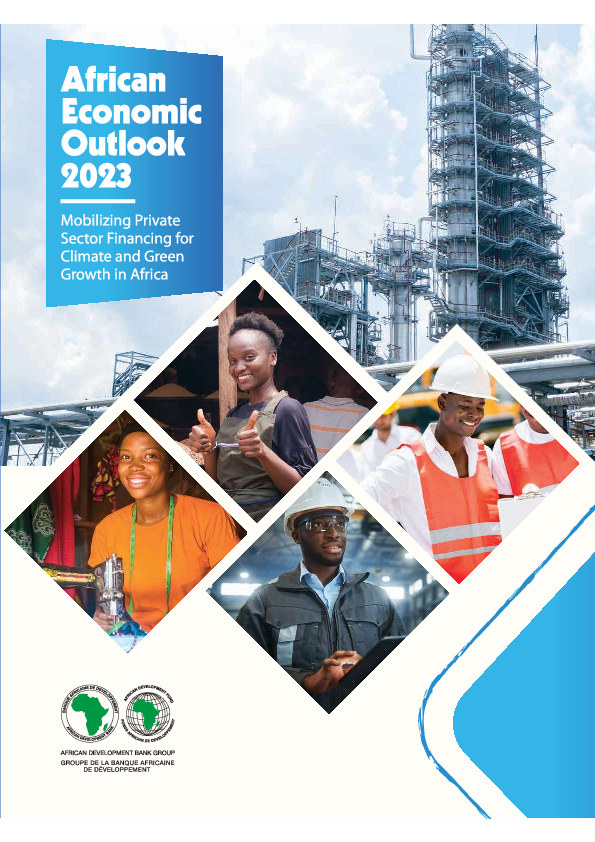 Read this article in French
Read this article in French- Share this article
- Subscribe to our newsletter
African Economic Outlook 2023
Africa is set to be the second-fastest growing region in the world after Asia in 2023-24, demonstrating the resilience of its economy despite its having to deal with multiple global shocks. But the projected growth will depend on global conditions and the continent’s ability to bolster its economic resilience, according to the African Economic Outlook 2023, which focuses on Mobilizing Private Sector Financing for Climate and Green Growth.
The report, launched in May 2023, forecasts that Africa will consolidate its post-Covid-19 pandemic recovery to 4.3 per cent GDP growth in 2024 from 3.8 per cent in 2022. Some 22 countries will record growth rates above 5 per cent, it says.
It recommends robust policy actions, including incentivising green industries and providing guarantees at scale to de-risk private sector investments in managing natural capital across the continent. The African Economic Outlook report is the Bank Group’s flagship annual publication. It provides compelling, up-to-date evidence and analysis to inform policy decisions.
While highlighting the challenges, the 2023 African Economic Outlook mainly focuses on opportunities to unlock private investments and know-how and tap the continent’s vast natural capital to combat climate change and spur the transition to green growth.
The report highlights Africa’s natural capital for climate finance and green growth. Africa is abundantly endowed with renewable and non- renewable natural resources, the authors write. It holds 30 per cent of the world’s mineral resources and 65 per cent of its uncultivated arable land, the world’s most productive forests both in timber and carbon retention resources, and ample solar, wind and hydropower.
Renewable resources replenish themselves over time and can generate benefits in perpetuity if the extraction rate does not exceed the reproduction rate. But, in nearly all African countries, renewable resources have excessive extractive capacity (over-capitalisation) and are overexploited, the report states. The authors shed light on the state of fisheries, mangroves, forests and ecotourism.
(AfDB/ile)
Read more and download the report on the AfDB website





Add a comment
Be the First to Comment